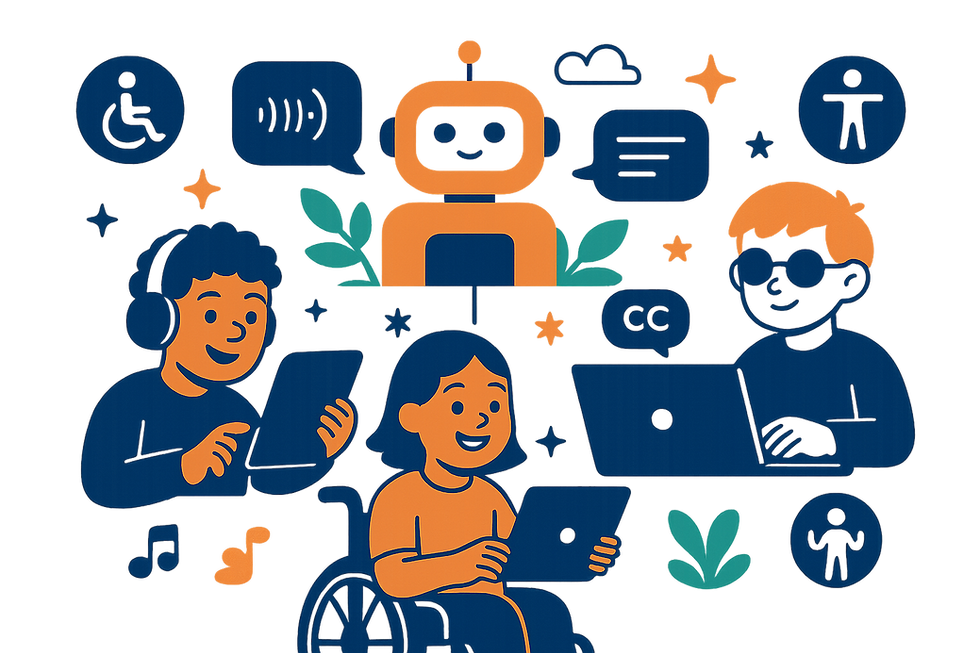The Transformative Power of AI in EdTech: Insights from John Faig
- Krzysztof Kosman

- Aug 22, 2024
- 3 min read
In the final part of our captivating conversation with John Faig—a prominent figure in educational technology and a RevOps consultant—we explore the transformative potential of artificial intelligence (AI) within school infrastructures.
This episode delves into the benefits of data-driven decision-making for EdTech startups, alongside the ethical considerations associated with AI.
With John’s unique blend of business, technical, and educational expertise, this discussion aims to equip educators and EdTech founders with the insights necessary to navigate the rapidly evolving landscape of education.
You can watch this podcast episode on YouTube, or read about it below.
Read on to discover how to turn EdTech struggles into success stories.
The Promise of AI-Enabled School Infrastructure
John shares his excitement for the integration of AI in school systems, emphasizing how these technologies can facilitate more meaningful interactions between teachers, students, and parents. With AI products working in conjunction with various stakeholders, schools can gain deeper insights into students’ learning preferences, strengths, and challenges. AI has the potential to revolutionize lesson planning by tailoring instruction to meet the needs of individual learners in real-time.
Enhancing Learning Processes
Currently, much of the learning process remains invisible, with crucial student feedback often confined to test scores and assessments. John highlights the opportunity for AI to provide continuous insights into student engagement and understanding. By employing AI bots, teachers can receive real-time feedback on lesson effectiveness, enabling them to adjust their teaching strategies accordingly. This transformation signifies a monumental shift towards more student-centered learning models.
Addressing Ethical Considerations
While the potential of AI in education is vast, ethical considerations surrounding data privacy and security are paramount. John argues that with the right safeguards, including data anonymization, schools can effectively manage student information while mitigating risks associated with data exposure. With proper protocols, educational institutions can leverage AI without compromising student safety or privacy.
The Lack of Innovation in Education
John underscores a pressing issue: the historical lack of significant innovation in educational settings. Schools often operate within rigid structures that stifle creativity and adaptability. The integration of AI, driven by trends from other industries, creates a unique opportunity for educational reform. The conversation reveals a growing optimism around the potential for AI to drive positive changes within schools.
Data Collection and Insights
Collecting and analyzing educational data is crucial for driving improvements in learning outcomes. AI tools can capture insights that provide a comprehensive view of each student's journey through education. John argues for a system where teachers, parents, and students can collaborate effectively using AI to inform teaching practices and support student success. This data-driven approach aims to elevate the overall learning experience while addressing individual challenges that students face.
A Collaborative Future with AI in EdTech
The conversation concludes with a hopeful vision for the future of education—one where AI enhances school infrastructure and nurtures a collaborative environment among all stakeholders. John emphasizes the need for continuous dialogue about the potential risks and ethical implications of AI, advocating for introspection and thoughtful implementation of technology within educational settings.
Key Takeaways:
AI can significantly improve interactions and insights among teachers, students, and parents, leading to personalized learning experiences.
Continuous data collection through AI can enhance educational outcomes by providing real-time feedback on student engagement and understanding.
Ethical considerations surrounding data privacy must be prioritized to create safe AI implementations in schools.
Historical resistance to innovation in education can be overcome with the integration of AI, fostering creative and adaptive learning environments.
Comprehensive educational data collection can drive informed decision-making and improve overall teaching practices.
Conclusion
This final part of our series with John Faig encapsulates the transformative potential of AI in education, addressing both its benefits and challenges. For those involved in EdTech, understanding these insights is crucial for navigating the complexities of integrating AI into educational systems.
Stay tuned for our upcoming content, where we will continue to explore innovations and trends shaping the future of education. Don't miss the opportunity to reflect on the full conversation with John Faig, packed with inspirational ideas and actionable strategies for educational reform.
And hey, drop us a line or subscribe to our newsletters. We'd love to talk about your project and simply stay in touch.


